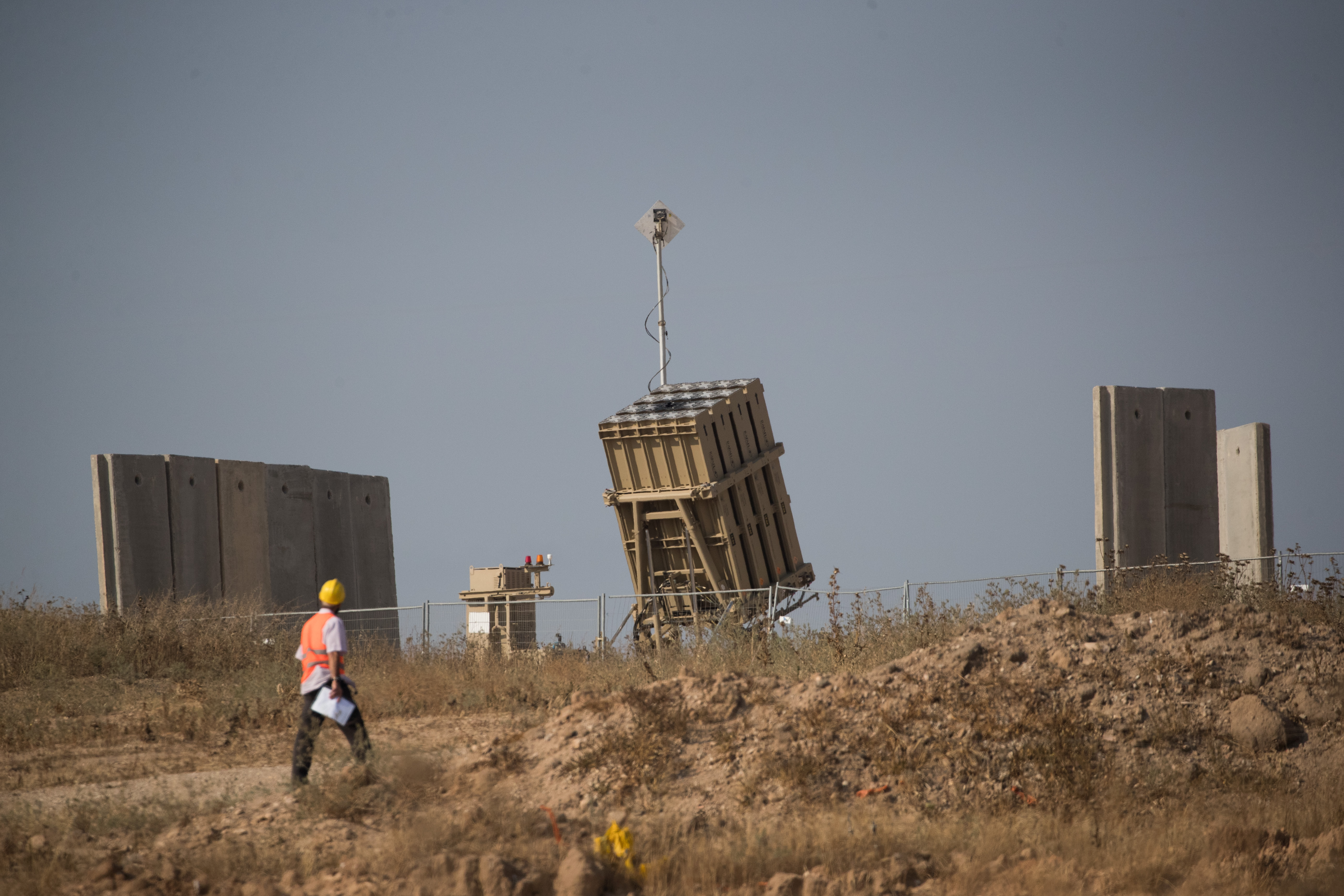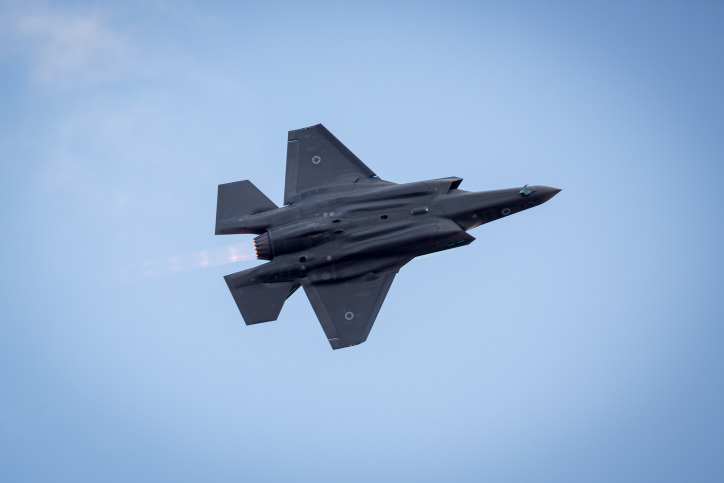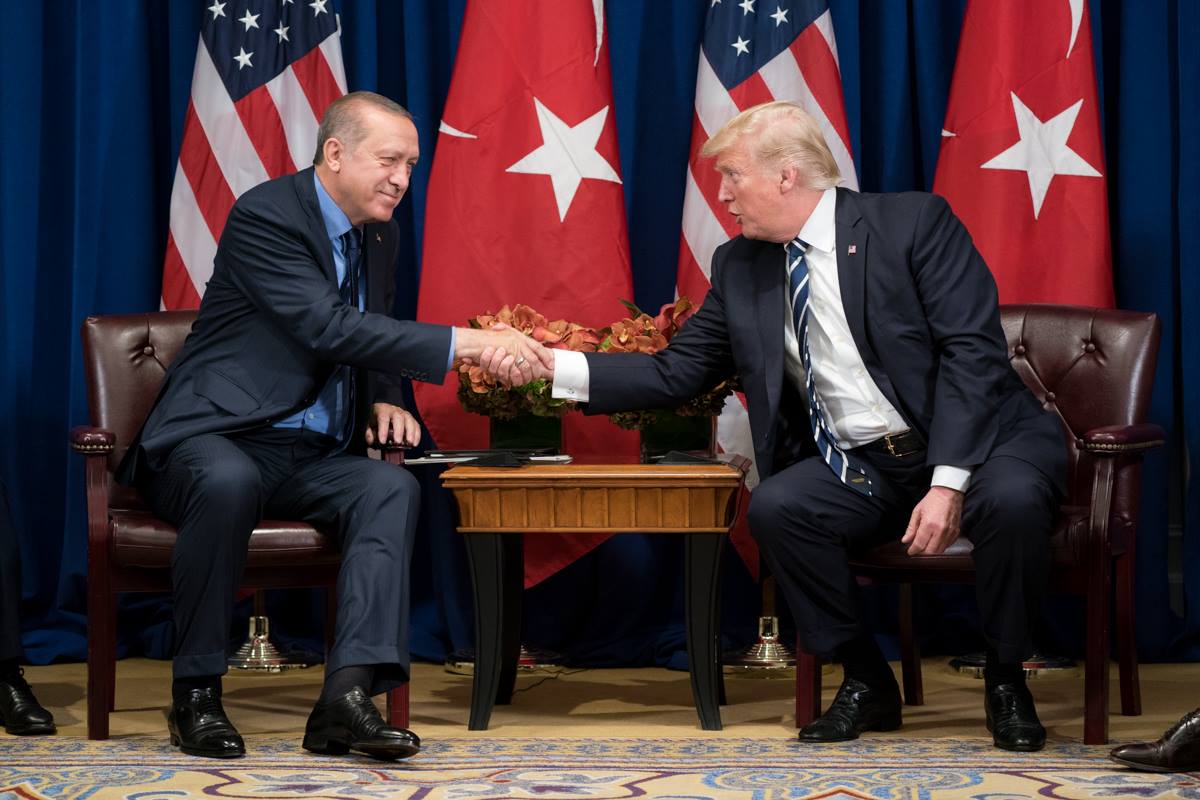The $717 billion National Defense Authorization Act includes a bipartisan measure honoring a decade-long memorandum of understanding between America and Israel, giving $3.8 billion annually to the Jewish state, while also also temporarily blocking the U.S. delivery of the F-35 fighter jets to Turkey.

(August 13, 2018 / JNS) U.S. President Donald Trump signed the National Defense Authorization Act (NDAA) on Monday, which includes $550 million in assistance to Israel and temporarily halts the sale of F-35 fighter jets to Turkey. This comes amid tensions between the United States and Ankara, which is currently holding an American pastor hostage, among other political moves.
The $717 billion measure includes a bipartisan measure honoring a decade-long memorandum of understanding between America and Israel, with the United States giving $3.8 billion annually to the Jewish state.
The NDAA, titled the “John S. McCain National Defense Authorization Act for 2019,” authorizes funds for research and development pertaining to weapon-defense systems, including the Iron Dome, David’s Sling, Arrow 2 and Arrow 3 systems told help Israel defend against missile and rocket threats. Additionally, the law provides $50 million for joint U.S.-Israeli work on counter-tunnel technology, which has emerged as a major security threat to Israel in recent years from the Palestinian terror group Hamas.

A man walks near an Iron Dome missile-defense system near the city of Sderot in southern Israel on May 29, 2018. Photo by Yonatan Sindel/Flash90.
The annual military blueprint also temporarily blocks the U.S. delivery of the F-35 fighter jets to Turkey in response to the detention of American pastor Andrew Brunson, whom the country accuses of participating in the failed 2016 coup against President Recep Tayyip Erdo?an.
Earlier this month, the United States slapped sanctions on two top Turkish government officials involved in Brunson’s detention. The White House also placed aluminum and steel tariffs on Turkey, and Trump said last Friday that he approved a doubling of those tariffs. The tariffs and sanctions have caused Turkey’s currency, the lira, to crash.
Diliman Abdulkader, director of the Kurdish Project at the Endowment for Middle East Truth, helped advise lawmakers regarding the Turkey provision in the NDAA and supports the current U.S. measures against Turkey.
“The F-35 is a big step in basically telling Turkey you’re not too big to fail,” Abdulkader told JNS. “Yes, they are a NATO ally, but the United States is also concerned for its own national security interests, and based on the rhetoric coming from Erdo?an, he seems to be threatening not only NATO interests but the United States as well.”

An Israeli Air Force F-35 fighter jet flies during an air show at the Hatzerim Air Base in the Negev Desert, Dec. 29, 2016. Photo by Miriam Alster/Flash90.
“[The] United States must adapt to the reality that we are not dealing with the same Turkey as in the past. Turkey under Erdogan is aggressive and contradicts American interests both in Europe and in the Middle East,” said Abdulkader. “Therefore, we have to change our foreign policy accordingly that will further isolate and pressure Turkey. We have to keep in mind all of Turkey’s internal and external problems are the doing of the Turkish government themselves not the United States.”
Regarding U.S. sanctions and tariffs against Turkey, Abdulkader said that this pressure campaign cannot be limited to the country’s custody of Brunson.
“Erdo?an’s hostage-taking of Americans to gain diplomatic leverage is one of many violations he has committed,” he said. “There are countless of human-rights violations by Turkey that must be considered part of the equation, including Turkish threats against Americans in Syria, the Kurds and, most recently, an attempt to raid and arrest American officials in Incirlik Air Base” in the city of Adana, Turkey.
Bill to block access to international financial markets
Aykan Erdemir, who served in the Turkish parliament from 2011 to 2015 and serves as a senior fellow at the Foundation for Defense of Democracies, told JNS that the relationship between America and Turkey goes beyond the F-35 jets.

The first issue on the U.S.-Turkish relationship is that as the bilateral crisis between the U.S. and Turkey deepens, the economic crisis gets worse,” he said.
“In the next few months to come, the more important question is Turkey’s bailout.”
The Senate Foreign Relations Committee passed a bill last month that would block Turkish access to international financial resources, such as the International Monetary Fund.
Transferring the F-35s to Turkey would be “a concern,” Erdemir said, but it would be “a security matter, and the implications would not be immediate, whereas with the economic crisis and with access to international financial institutions, the consequences would be immediate because we’re talking week, if not, months.”
The NDAA will need an appropriations bill to fund it.
Such a measure already passed the Senate Appropriations Committee; its chairman, Sen. Richard Shelby (R-Ala.), has been trying to get it on the chamber floor for a full vote in order to get it to the president before the fiscal year deadline at the end of September.
The House of Representatives passed its appropriations bill last month. Any bill from the upper chamber would need to be reconciled with the House in conference committee negotiations



@ Edgar G.:
The extra spending for Israel is in the Defense Bill as part of it.
@ Bear Klein:
So what they’re doing is passing a NEW bill…? Trump rightly cares for US industries, but along time agreement to allow an amount to be spend in Israel Industry should be OK for him. Since it’s all virtually spent on complimentary armrments , technological improvments for the US hardware, and R&D, etc is it not…
@ Edgar G.:
I believe they simply circumvent the spending limitations by passing the bill and it is signed into law. The latest law would supersede the prior agreement.
The buy American part Trump wants to enforce that is part of what he cares about.
@ Bear Klein:
I suppose that it’s being upheld because it’s a legal agreement. But I’ve read that both houses of Congress are looking to find other ways to either nullify or go around it, so that more money can be legally voted to Israel. If they nullify it, then everything will be as before, only with increased grants, plus ancillary awards.
@ Edgar G.:
The buy in USA clause with a gradual reduction of Israeli domestic purchases is I believe still being upheld by the Trump Administration. The amount of monies can be increased in-spite of the Obama deal provisions.
If I remember correctly Obama made Israel sign that they would refuse any extra, even if voted to them by Congress. And also that virtually ALL the money had to be spent in the US, eradicating the 25-27% that Israel had been allowed to spend in Israeli industry.